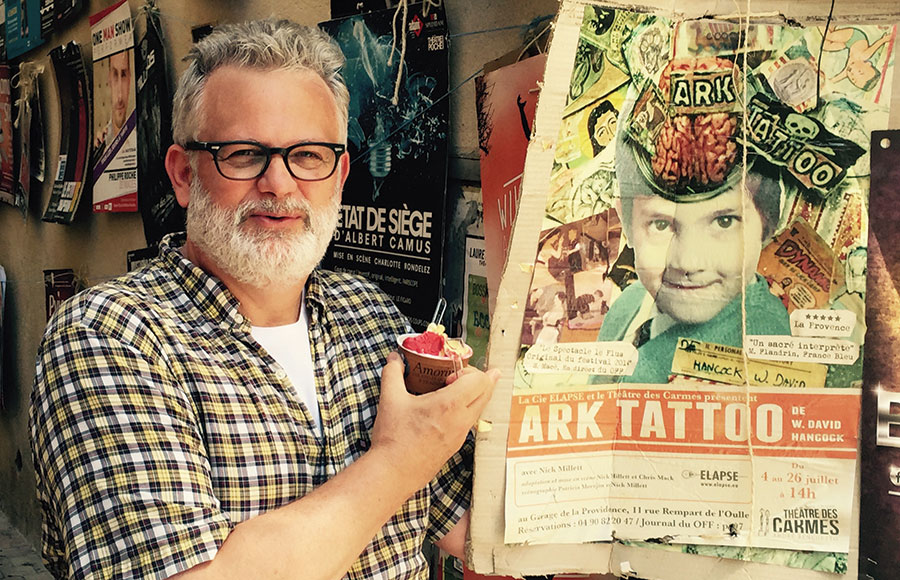
Hancock’s unusual perspective on drama stems from his days at Bucknell, where he started an animal behavior major before switching to theatre. “I look at my plays as live experiments,” says Hancock, who researched baboon kinship behavior. “Watching how an audience can change an event really fascinates me.” For Master, he collaborated with an African-American artist to create Uncle Jimmy’s oeuvre, and worked with a diverse cast to explore the racially charged themes evoked by Twain’s book. “It’s important to interrogate yourself and your privilege and not be afraid to go deep,” he says.
He’ll restage the play next year in London, working with a new artist to examine England’s legacy of colonialism. Starting later this year, he will also tour Europe with a new work, Cathexis, which he describes as a “participative judicial-theatrical event” set in “an interactive tribunal of the future.”